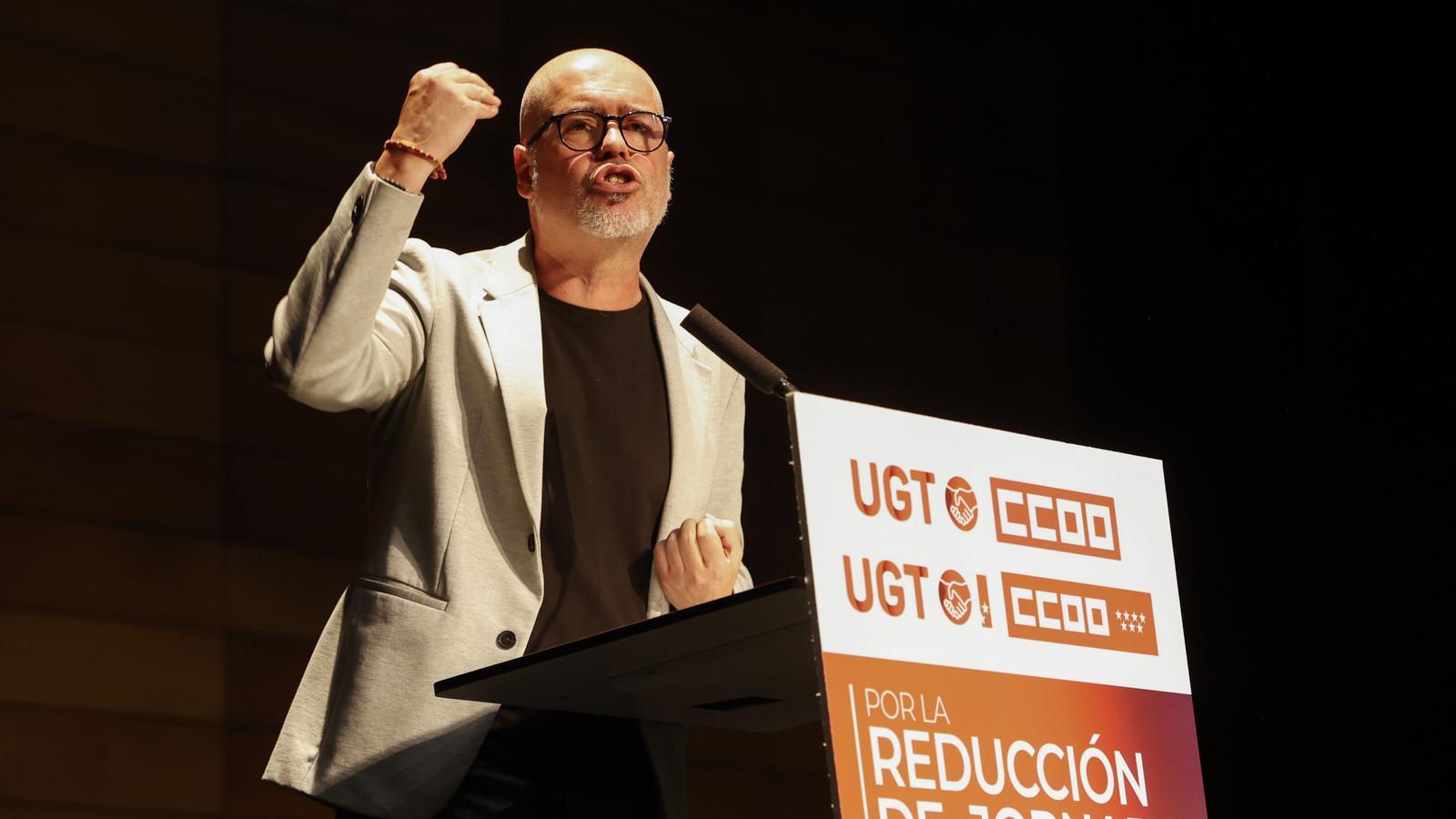Unions increase pressure to reduce working hours: "Be belligerent"
Foment del Treball thanks Junts, PP, and Vox for their "courage" in halting the measure and "resisting pressure" from Yolanda Díaz.


BarcelonaThis Tuesday's extraordinary plenary session of Congress was scheduled to vote on the comprehensive amendments to the royal decree law to reduce the working week to 37.5 hours, which meant that the Spanish government would have to receive parliamentary approval or rejection of the main labor reform of the current year. However, precisely because of the lack of guarantees, the Ministry of Labor sought to stall last week. The department headed by Yolanda Díaz decided to postpone the parliamentary debate on the bill to have greater room for negotiation with Junts, one of the parties that presented these amendments.
What was held this Tuesday, precisely because of the postponement of the parliamentary debate, was an assembly of union delegates from Comisiones Obreras (CCOO) and UGT to maintain pressure on the Spanish government and political groups ahead of the vote on the reduction of working hours, which has been postponed until September. It is in this context that the leaders of the two main Spanish unions have asked workers to be "belligerent" when demanding the reduction of working hours and to take the pressure to the streets: "Only through mobilization, only through demand, are rights won, rights improved," said the general secretary of CC.
For his part, the Secretary General of the UGT (United Left), Pepe Álvarez, addressed the parliamentary groups directly, warning them that they will continue this fight "now, in September, in October, every day of the year" until the measure is approved. "If anyone thinks that, by delaying without resolving this issue and by pressuring it not to go to Congress, we will forget about the reduction in working hours, it's fixed," Sordo added, along the same lines.
Demand and gratitude to Junts
The union leaders also addressed Junts directly, asking them to withdraw the amendment to the bill to reduce working hours. Sordo accused the Junts members of using their opposition as an "excuse." "What kind of company and what kind of employers' association do they represent? The employers' association that remains silent in the face of the racist riots, racist violence, and xenophobic violence we have seen in Torre Pacheco?" Sordo criticized. Both he and Álvarez also pointed out that 85 percent of Catalan workers want working hours reduced. "Who do they represent?" the latter asked.
Meanwhile, at the headquarters of the Catalan employers' association Foment del Treball, the exact opposite was being advocated. Its president, Josep Sánchez Llibre, congratulated Junts, the PP, and Vox—the three parties that presented amendments to the entire bill—for resisting voting in favor of reducing the working day to 37.5 hours. "They have been firm, brave, and have been quite strong with this amendment to the entire bill, which has led the government to withdraw it from Congress," said Sánchez Llibre, who believes that Junts "has resisted the pressure from the vice president." For the president of this large Catalan employers' association, reducing the working day would be "the biggest economic mistake of the Spanish government" since the arrival of democracy.
